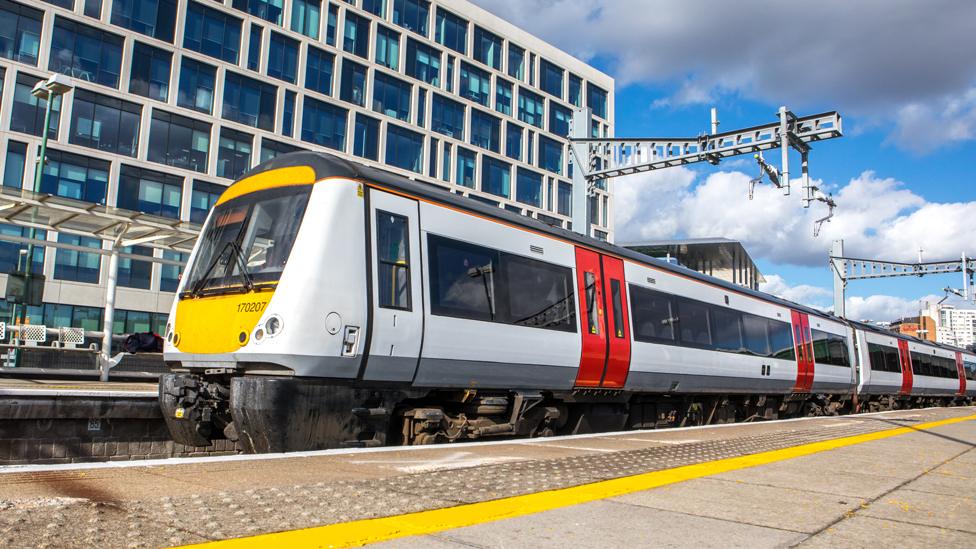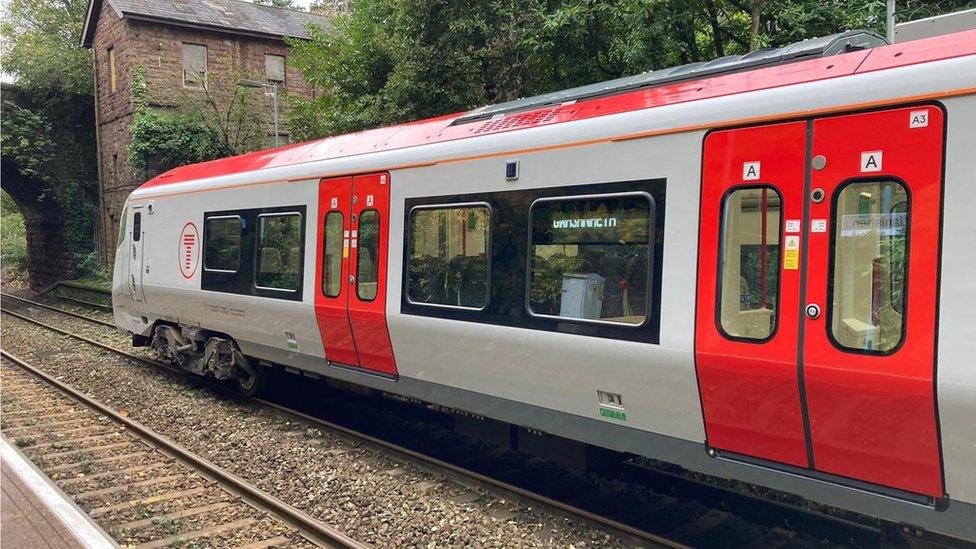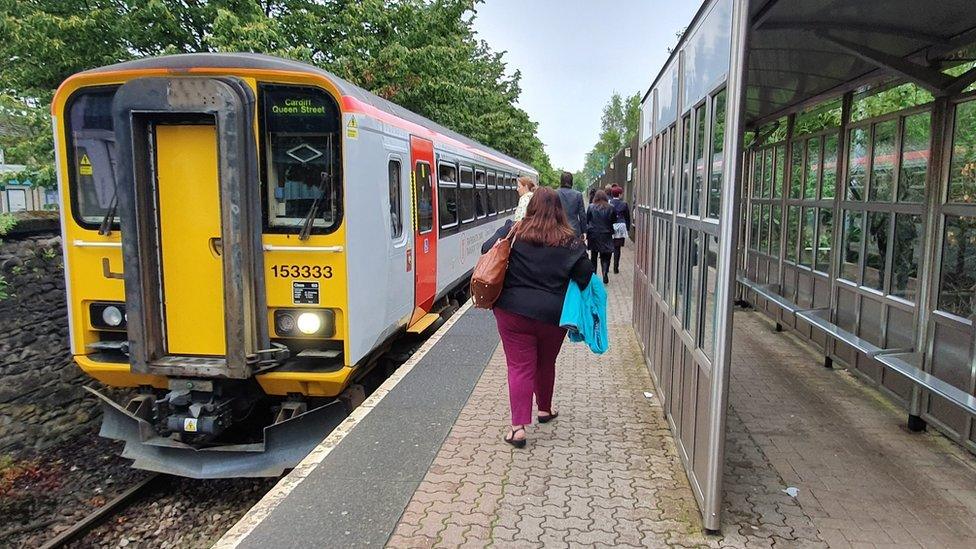Train drivers broke speed limit on Wales' hottest days, report finds
- Published

The incidents took place on Wales' second hottest day of this year
Two trains broke speed restrictions on Wales' hottest days, a report has found.
Network Rail imposed emergency speed restrictions during July's heatwave which limited train speeds to 60mph (96km/h).
But on 19 July one train between Holyhead and Cardiff clocked a speed of 89mph near Craven Arms, while one from Milford Haven broke the limit by 10mph.
Transport for Wales (TfW) said it had taken action to improve safety.
Other rail companies have been asked to comment.
The Rail Investigation Branch's report, external said extreme temperatures can pose risks such as tracks buckling and issues with signalling equipment.
No reported consequences resulted from the rule break.
Forms notifying train operating companies of blanket speed restrictions are communicated from rail operating centres.
The method of communicating this information varies depending on the company, according to the report.
Some posted copies of the restrictions at drivers' booking on points, while others issued personal copies to each driver, either electronically or on paper.
The report said Network Rail has a system which can broadcast reminders on a railway radio system - but none of them had it set up at the time.
It added: "Immediately after the incidents at Craven Arms and Tram Inn, Network Rail's Wales route introduced these broadcasts for the heat-related BESR, while the Western route started using them on subsequent days."
TfW said it, like other operators, had been subject to "a large number of precautionary restrictions" during extreme heat in the summer.
A spokesperson said: "These restrictions were communicated to our drivers through our proven processes and the vast majority were followed, where there were overspeeds we reacted with industry partners and implemented additional checks to ensure future restrictions were followed.
"This learning has been built into ours and the infrastructure managers operational plans and processes going forward, further improving safety."
- Published10 November 2022

- Published11 August 2022

- Published28 January 2020
